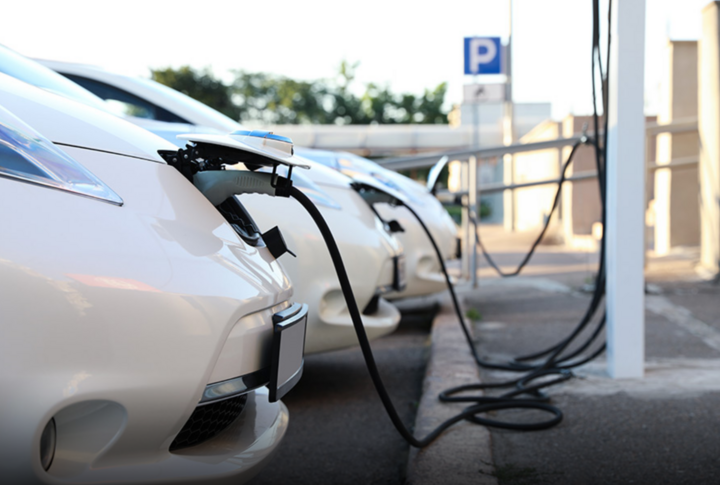Why are electric vehicles increasingly preferred over gasoline cars?
Shifting to electric vehicles is an inevitable trend, bringing numerous clear benefits for the environment, health, climate, and even the economy.
On September 17, AFP reported that Norway, a European oil and gas powerhouse, reached a significant milestone when the number of electric vehicles surpassed gasoline-powered cars. This makes Norway the first country in the world to achieve this feat, aiming for all new cars sold to be zero-emission.
According to the Norwegian Road Federation (OFV), among the 2.8 million registered personal cars in this Nordic country, there are 754,303 fully electric vehicles compared to 753,905 gasoline-powered cars. The number of diesel vehicles remains the highest, just under 1 million, but sales are rapidly declining.
So, what leads the people of a nation that produces over 2 million barrels of oil per day, ranking 13th globally and first in the EU, to prefer electric cars over gasoline?
Norway's success in promoting electric vehicles stems from three main factors. First, government incentives starting in the 1990s and 2000s have made electric vehicles the most financially attractive option. Norwegians purchasing electric cars are exempt from value-added tax and registration fees, along with other financial perks, significantly reducing ownership costs.

By 2012, the total cost of owning an electric vehicle, including tax reductions, became cheaper than traditional vehicles, with electric cars costing approximately 5,000 euros less than gasoline-powered vehicles in 2021. Second, Norway has the highest number of public fast-charging stations per capita, allowing electric vehicle batteries to charge up to 80% in just 20 minutes. Residents in apartments are even subsidized for installing charging stations. Third, additional perks like free parking in cities, reduced road fees, access to bus lanes, and discounted ferry tickets also contribute to attracting users.
However, economic incentives are not the only reasons for the growing popularity of electric vehicles. Norway is not the only country witnessing this trend. A survey of 13,000 consumers across 18 countries by Ernst & Young paints a broader picture.
Consumer confidence in electric vehicles is rising sharply. For the first time, more than half of consumers—52%—planning to purchase a car within the next 24 months indicated they would choose an electric or hybrid vehicle. This figure has increased by 11% since 2021 and by 22% since 2020. The growing confidence in electric vehicle technology is also reflected in the increase in interest in fully electric vehicles, rising from 7% in 2020 to 20% in 2022. Although the popularity of hybrid vehicles is also increasing, it is at a much slower pace.
As interest in electric vehicles grows, the motivations for choosing them are also evolving. Early adopters, who were primarily motivated by environmental concerns, are now attracting more "allies" with more practical financial considerations.
The "pull" effect—the desire to be recognized as environmentally friendly through the purchase of electric vehicles—is also becoming a significant motivation. Additionally, many people are choosing electric vehicles due to concerns about traffic congestion and pollution, helping them save more costs compared to using gasoline cars.
Currently, concerns about driving range and initial ownership costs of electric vehicles are rapidly diminishing.
According to Ernst & Young's report, the demand for electric vehicles is expected to be highest in Italy, Spain, and Norway within the EU, as well as in China, South Korea, and Singapore in the Asia-Pacific region.

Data from a survey conducted in New York State (USA) indicates that sustainability is considered one of the top reasons for consumers to switch to electric vehicles. About 27% of respondents cited avoiding gasoline or other fossil fuels as their primary reason for transitioning to electric.
When gasoline or other fossil fuels are burned to power vehicles, they emit CO2, a potent greenhouse gas contributing to climate change. In New York State, greenhouse gas emissions from the transportation sector account for approximately one-third of the state’s total emissions.
Driving electric vehicles significantly reduces carbon emissions during transportation, averaging 50-70% less compared to gasoline-powered vehicles. Drivers can further reduce their emissions by charging electric vehicles with electricity generated from renewable sources.
Another important factor is exhaust emissions, with 23% of respondents wanting to eliminate emissions from their personal vehicles.
Exhaust emissions can pollute local air quality and contribute to global climate change, seriously affecting public health. For example, the 2023 Chevrolet Bolt shows that drivers can reduce CO2 emissions by 2.55 tons per year by using this electric vehicle instead of a gasoline-powered car.
However, even without considering the obvious environmental or health benefits, the overall lifetime cost of using electric vehicles is lower than that of gasoline cars, thanks to savings on fuel and maintenance costs. For instance, the 2023 Chevrolet Bolt shows that in the first year, drivers can save $611 compared to using a similar gasoline model.
Additionally, battery-powered electric vehicles have fewer moving parts and do not require oil changes, leading to lower and less frequent maintenance costs. The braking systems of electric vehicles also experience less wear due to regenerative braking. On average, electric vehicle drivers spend about 50% less on repairs and maintenance.
Finally, a crucial practical reason for buyers is that electric vehicles are just as safe, if not safer, than gasoline and diesel vehicles. In fact, the president of the Insurance Institute for Highway Safety (IIHS) has stated, "We can confidently say that making the U.S. fleet more environmentally friendly does not require any trade-offs in safety." Several electric vehicles have received the IIHS's Top Safety Pick award for 2024, including the Audi Q4 e-tron, Hyundai Ioniq 6, and Subaru Solterra.
Original article and pictures by AutoPro
